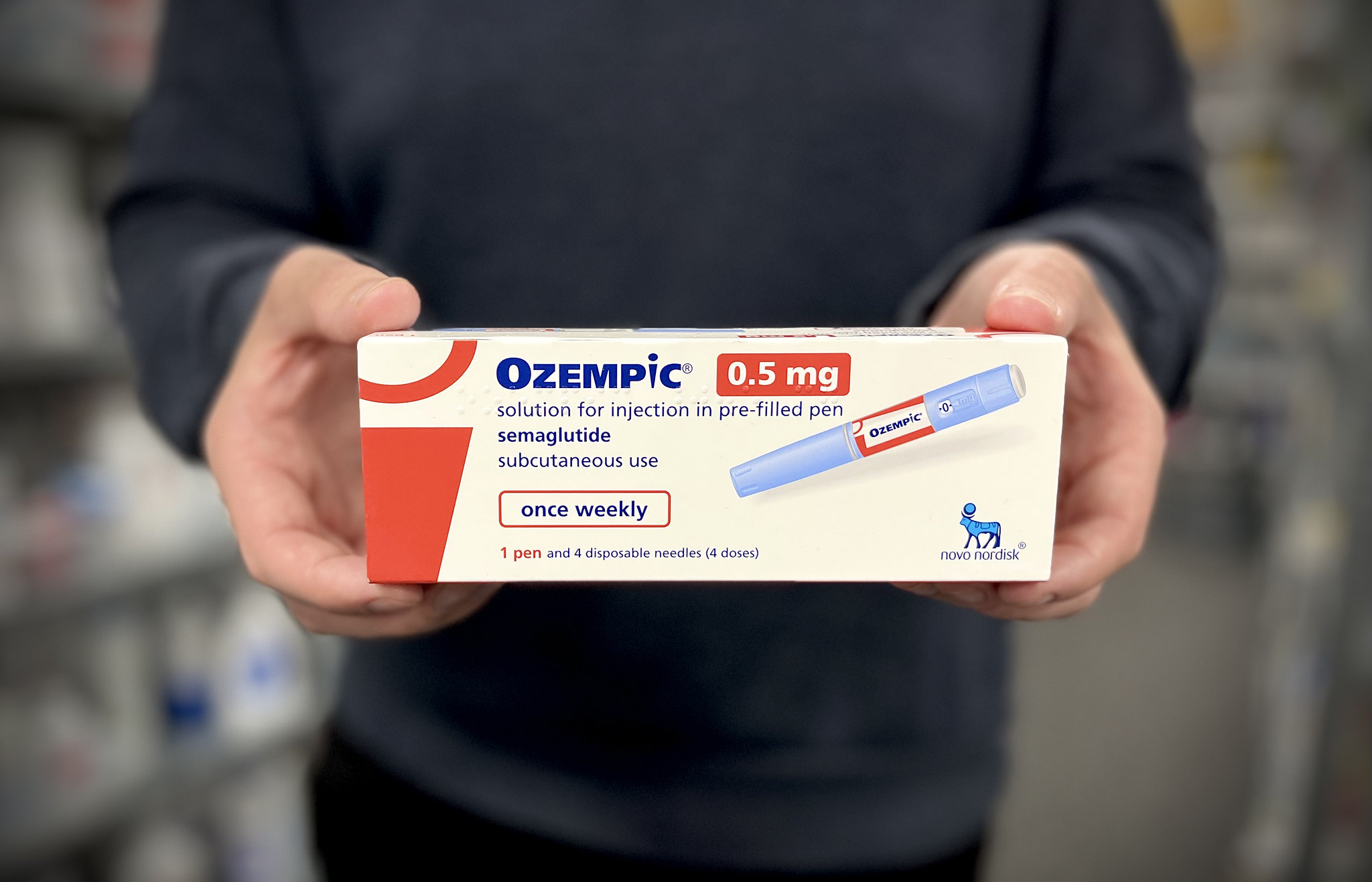In 2023, reports found that nearly 2% of Americans had received a prescription for semaglutide – the active component in GLP-1 drugs Ozempic, Wegovy, and Rybelsus. A separate report, published last year, found that 12% of the US population has taken a GLP-1 drug at some point, with around 6% currently using them.
With the rising interest and use of GLP-1 drugs like Ozempic, researchers are uncovering how these weight loss medications come with a risk of side effects like nausea, diarrhea, decreased kidney function, and now “Ozempic blindness.”
Ozempic Blindness
Last year, findings published in JAMA Ophthalmology found a disturbing link between semaglutide and an eye condition that can potentially cause irreversible vision loss in one or both eyes: nonarteritic anterior ischemic optic neuropathy (NAION) – a stroke of the eye. The study’s researchers suggested that individuals who take semaglutide are between four and seven times more likely to develop NAION than those who don’t take it.
Now, the focus of this article isn’t the past study. Rather, it’s about a recent one seemingly confirming the 2024 findings, with said study suggesting an association between semaglutide and NAION.
GLP-1s and Eye Conditions
Led by Utah ophthalmologist Bradley Katz, a group of researchers analyzed the cases of nine patients who reported eye issues soon after they began taking semaglutide or tirzepatide (Mounjaro, Zepbound). Seven of the patients developed NAION, one bilateral papillitis (optic nerve inflammation disorder that may result in vision impairment or loss), and one case of paracentral acute middle maculopathy (PAMM), which causes a blind spot in one’s vision and can cause vision loss.
How can Ozempic lead to blindness?
In discussing Ozempic and other GLP-1s effects on our vision, Dr. Katz explained to Medical News Today that as these drugs are effective at reducing blood sugar, this rapid reduction may cause swelling in the optic nerve,
“It can also temporarily worsen diabetic eye changes. How it causes swelling is thought to be due to an osmotic shift. When there’s more ‘stuff’ in your blood — in this case sugar — and you suddenly reduce the amount of ‘stuff’ in the blood, it causes rapid shifts in fluid between the blood vessels and the cells in the eye,” he said.
What we need to learn from this latest development
Speaking to the New York Times, a spokesperson for Novo Nordisk, the manufacturer of Ozempic and Wegovy, said that patient safety is the company’s top priority. The manufacturer insists that there is no causal relationship between their Ozempic and Wegovy and the blindness:
“Novo Nordisk, on its part, has conducted an analysis across randomized controlled clinical trials with GLP-1 receptor agonists, including a blinded ophthalmologist evaluation to confirm NAION diagnoses.” These data do not suggest a causal relationship between GLP-1 RA use and NAION events.”
Calls for the FDA to track the drug’s adverse effects
Now, whether you believe them is your prerogative. Yet, Katz and his colleagues are not actually advising people against taking or continuing to use the drugs. Rather, they are calling on doctors to lobby the Food and Drug Administration (FDA) to track the drug’s adverse effects,
“We as well as other concerned physicians, are also asking [the] FDA to mandate a post-marketing survey of these drugs to find the true incidence of eye complications associated with them.”
Katz also adds that if you are taking the drug, and you experience a change in your vision, then it’s imperative that you ‘consult the prescribing doctor and see an ophthalmologist.’He also recommends that should you start taking these drugs, or increase your dosage, that you do so slowly to ‘reduce the risk of dropping their blood sugar and causing an osmotic shift.’
Ozempic: Miracle Drug or Great Marketing?
Longevity had the opportunity to speak with Dr. Craige Golding, a respected internal medicine specialist, with global credentials as an integrative medicine physician and anti-aging specialist, about the importance of understanding the adverse effects that come with using GLP-1 medications like Ozempic,
“Like any chronic drug, there are downsides, absolute contraindications, and side effects that must be considered,” Dr. Golding commented. “Many people are unaware of the risks because pharmaceutical representatives don’t always share them, and the research is often funded by those who benefit financially.”
Read more about Dr. Golding’s thoughts on Ozempic below:
Dr. Craige Golding On Ozempic: Risks, Rewards, and Alternatives
References
Beard, M. (2025). Some Ozempic users are developing serious eye issues that lead to blindness. [online] New York Post. Available at: https://nypost.com/2025/02/12/health/some-ozempic-users-are-developing-serious-eye-issues/.
Hathaway, J.T., Shah, M.P., Hathaway, D.B., Zekavat, S.M., et al. (2024). Risk of Nonarteritic Anterior Ischemic Optic Neuropathy in Patients Prescribed Semaglutide. JAMA Ophthalmology. [online] doi:https://doi.org/10.1001/jamaophthalmol.2024.2296.
Katz, B.J., Lee, M.S., Lincoff, N.S., Abel, A.S., Chowdhary, S., et al. (2025). Ophthalmic Complications Associated With the Antidiabetic Drugs Semaglutide and Tirzepatide. JAMA Ophthalmology. [online] doi:https://doi.org/10.1001/jamaophthalmol.2024.6058.
Montero, A., Sparks, G., Presiado, M. and Published, L.H. (2024). KFF Health Tracking Poll May 2024: The Public’s Use and Views of GLP-1 Drugs. [online] KFF. Available at: https://www.kff.org/health-costs/poll-finding/kff-health-tracking-poll-may-2024-the-publics-use-and-views-of-glp-1-drugs/.
Pelc, C. (2025). Review links 3 potentially-blinding eye conditions to GLP-1 drugs like Ozempic. [online] MedicalNewsToday. Available at: https://www.medicalnewstoday.com/articles/review-3-potentially-blinding-eye-conditions-glp-1-drugs-ozempic-mounjaro
Scannell C, Romley J, Myerson R, Goldman D, Qato DM. Prescription Fills for Semaglutide Products by Payment Method. JAMA Health Forum. 2024 Aug 2;5(8):e242026. doi: 10.1001/jamahealthforum.2024.2026. PMID: 39093590; PMCID: PMC11297375.



![women [longevity live]](https://longevitylive.com/wp-content/uploads/2020/01/photo-of-women-walking-down-the-street-1116984-100x100.jpg)










